AITA for telling my sister that my other pregnant sister is planning to name her baby after her deceased son, causing her to cut her off?
Birthdays, weddings, and even baby name choices often come loaded with family history and emotion. In a particularly delicate situation, one sibling found herself caught between honoring a family tradition and protecting her grieving older sister’s feelings.
When the youngest sister, now pregnant with a baby boy, decided to name her child after their late nephew—a decision meant as a tribute—it ignited a fierce family debate. The older sister, still in deep mourning after losing her son to SIDS less than two years ago, was understandably devastated by the prospect of sharing her beloved nephew’s name with a new family member.
Amidst the conversation about traditions and what constitutes a genuine honor, emotions ran high. The middle sister, feeling torn by loyalty to both sides, ultimately intervened, believing that the decision would only reopen deep wounds. What ensued was an argument that fractured relationships, leaving the family to grapple with balancing respect for the past while welcoming new life.

‘AITA for telling my sister that my other pregnant sister is planning to name her baby after her deceased son, causing her to cut her off?’
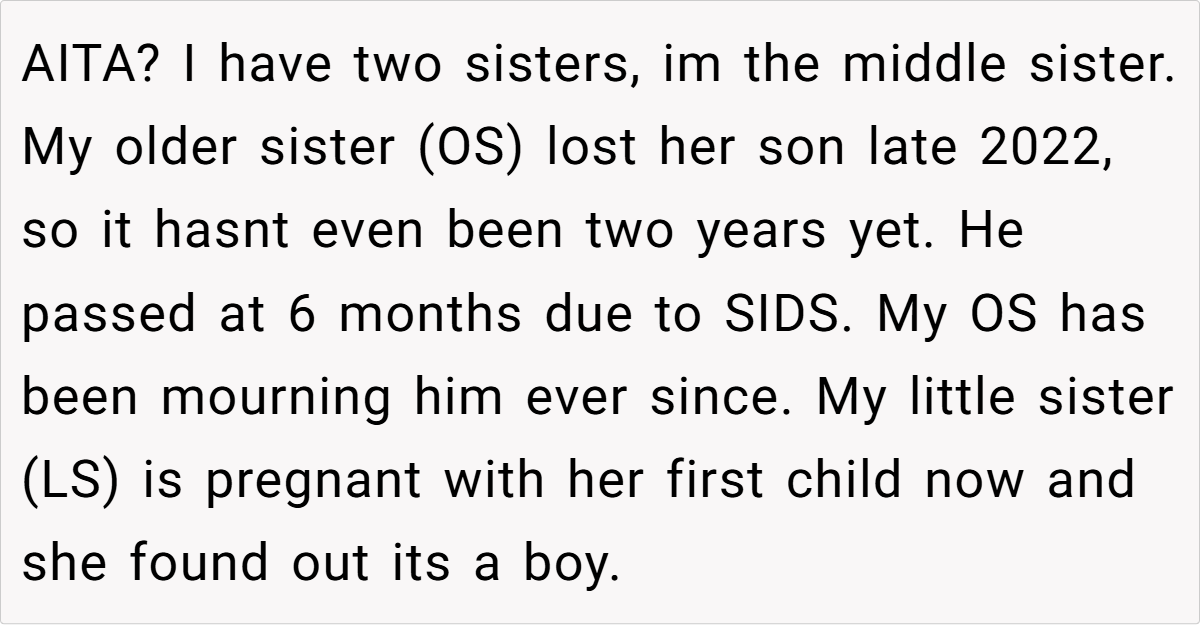
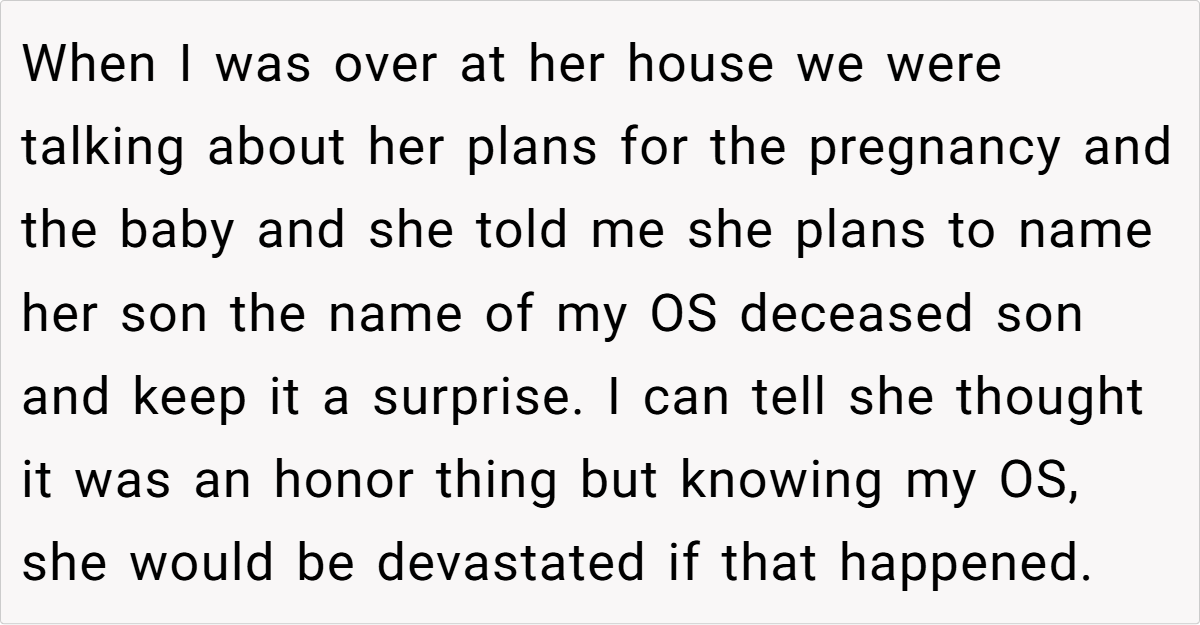
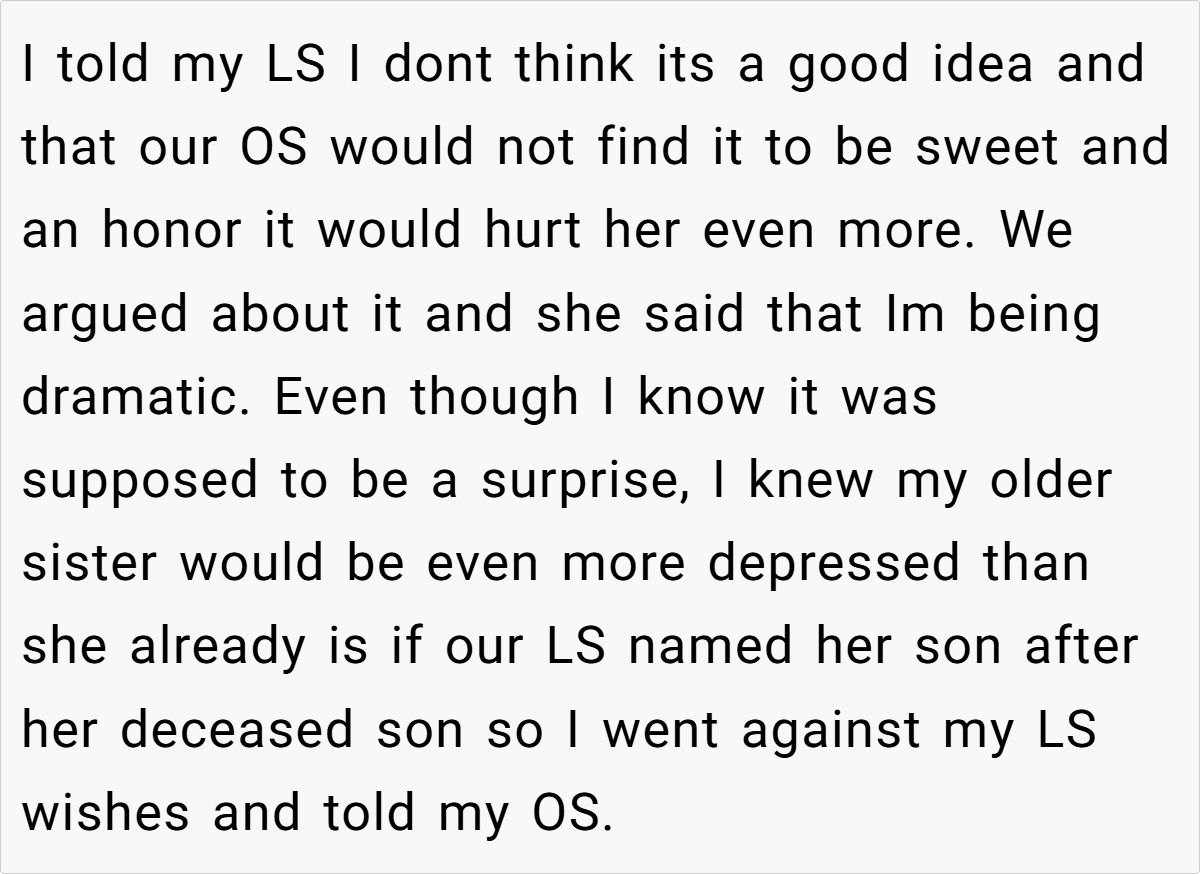
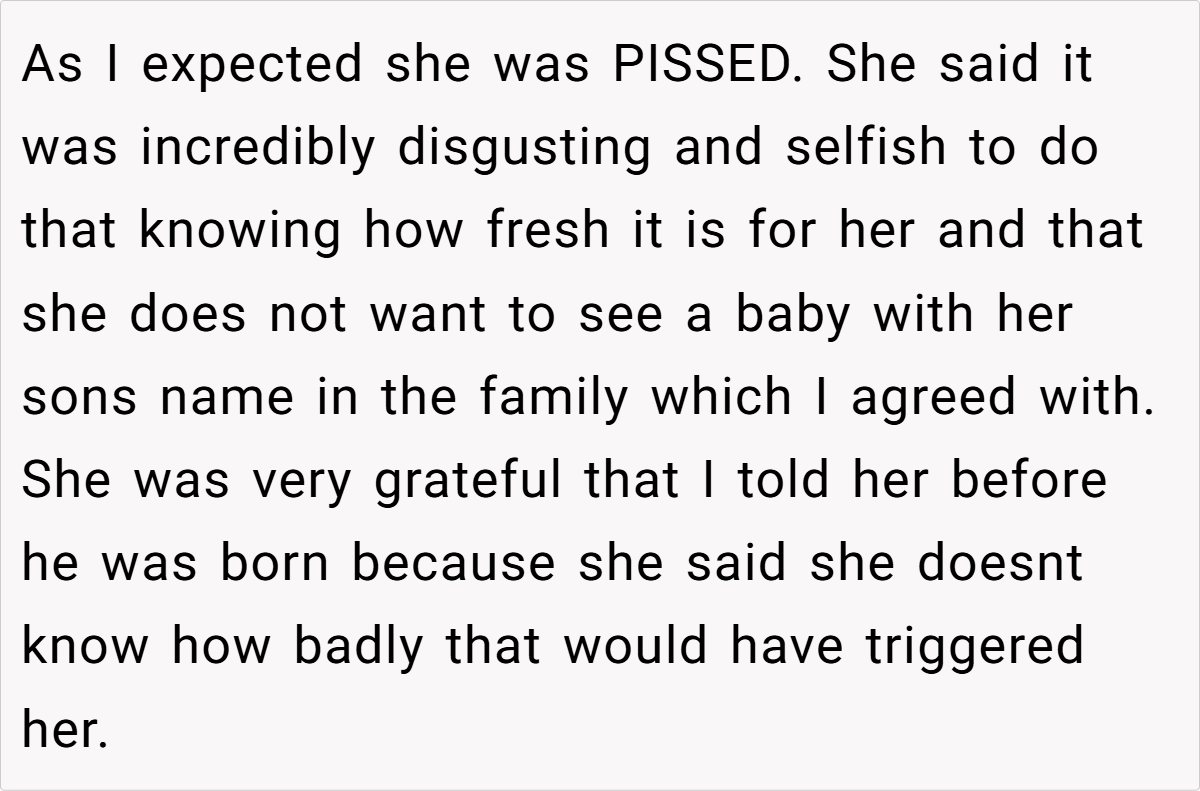
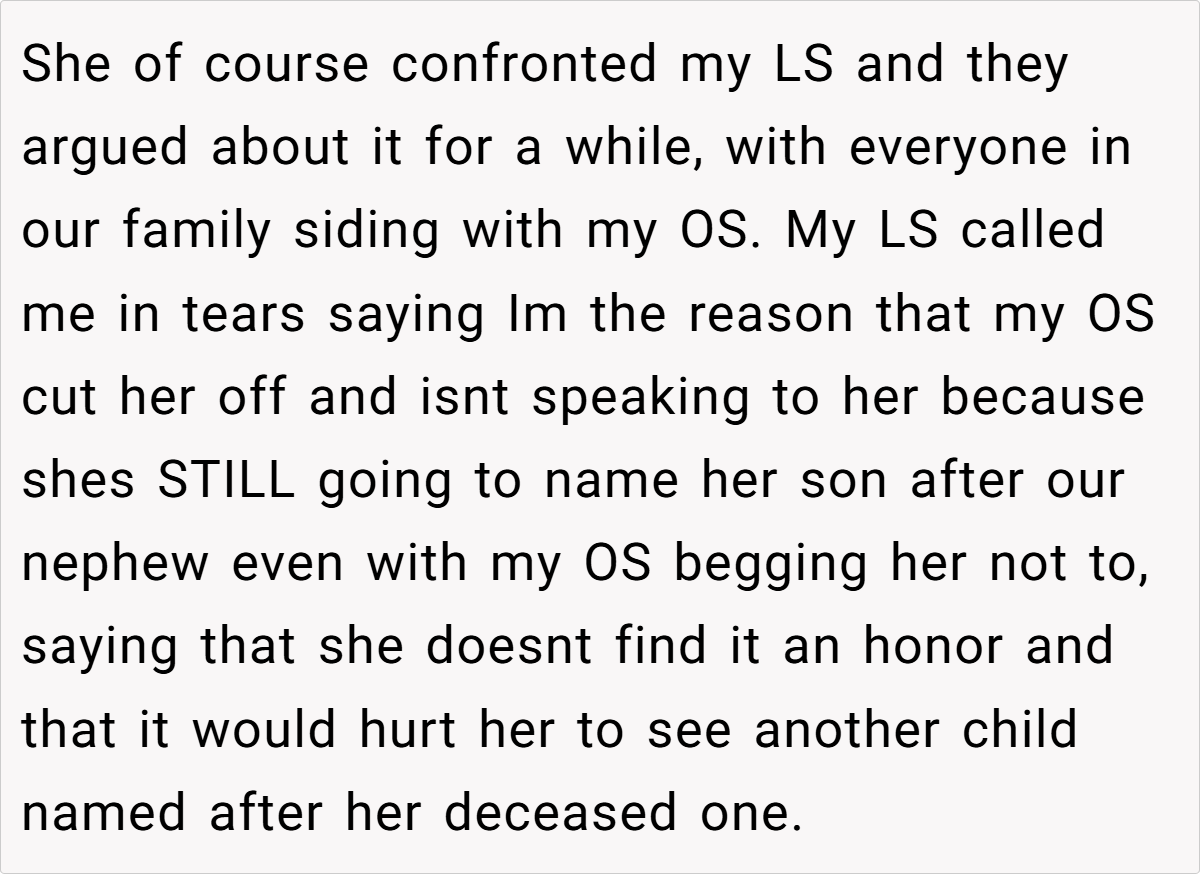
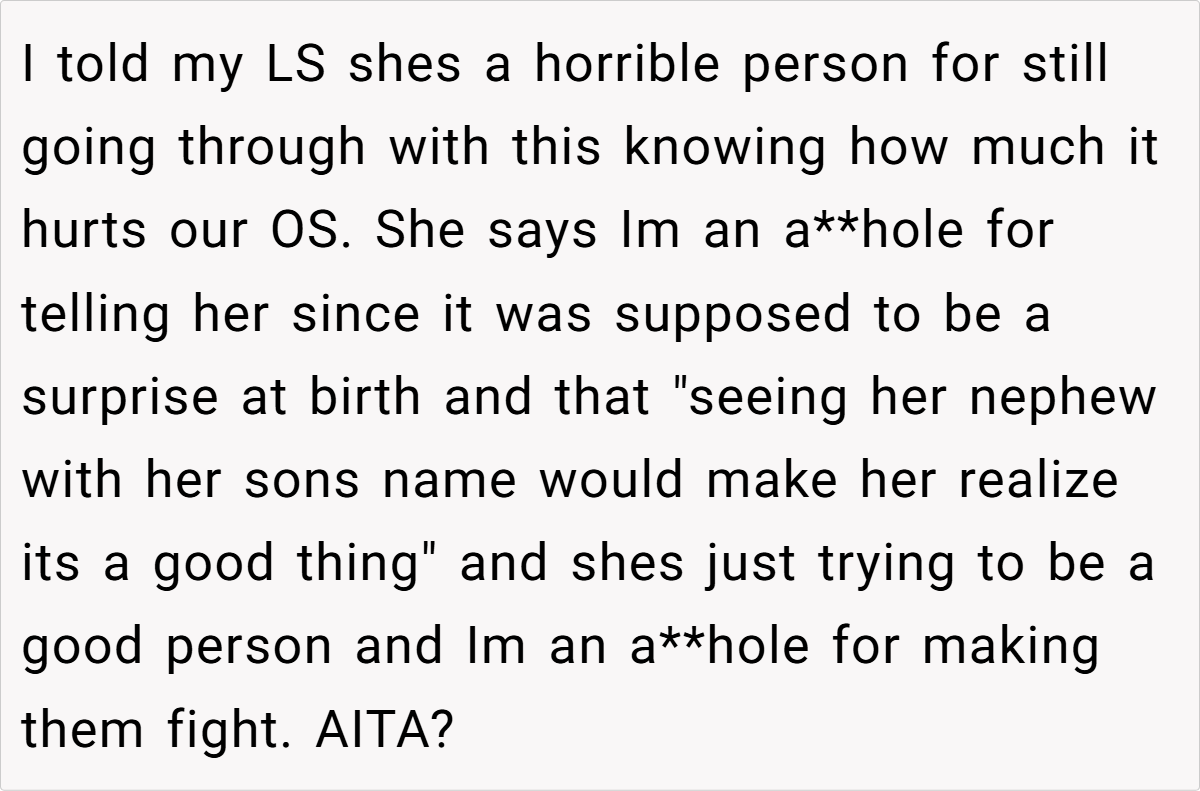
Grief expert Dr. Alan Wolfelt has long emphasized that the grieving process requires not only time but a safe environment where emotional triggers are minimized. In this instance, the decision to name the new baby after a deceased loved one may have been intended as an honor, yet for someone still mourning, it can feel like an unwanted reminder of loss.
Dr. Wolfelt notes, “Grief is a very personal journey and imposing reminders of loss—even with good intentions—can sometimes do more harm than good.” This perspective is especially relevant here, as the older sister’s fresh loss means her pain is still very raw.
The middle sister’s intervention, though controversial, was rooted in a desire to protect her grieving sibling from further hurt. By revealing the naming plans to the older sister, she hoped to prevent a scenario that could deepen an already painful loss.
However, this decision backfired for the pregnant sister, who viewed the surprise as a personal and meaningful tribute to her late nephew. The ensuing conflict highlights a common dilemma in family dynamics: when is it appropriate to prioritize collective healing over individual expression?
Family therapists often suggest that open communication is the key to resolving such conflicts. A preemptive family discussion about the significance of names and the timing of tributes might have allowed all voices to be heard.
This approach would have given the older sister a chance to express her feelings in a controlled environment, while also allowing the pregnant sister to explain her intentions without the sting of unexpected confrontation. By acknowledging that each family member’s grief and hope is valid, families can often find a middle ground where traditions honor the past without inflicting further pain.
Ultimately, while the middle sister’s protective instincts were well-intentioned, the fallout from her decision underscores how complex grief can be—and how sensitive decisions like naming a child require not only foresight but a deep empathy for the unique journey of each family member.
Here’s what the community had to contribute:
The Reddit community shared a range of reactions. Many users empathized with the older sister’s pain, arguing that imposing a name tied to a recent loss was insensitive. Others supported the middle sister’s attempt to protect her, noting that sometimes family members need to make hard choices for the greater good.
A few commenters sympathized with the pregnant sister, suggesting that her intent was to honor a memory rather than cause pain. Overall, the discussion underscored the tension between personal tribute and emotional safety, with many urging for more open conversations about such sensitive topics.
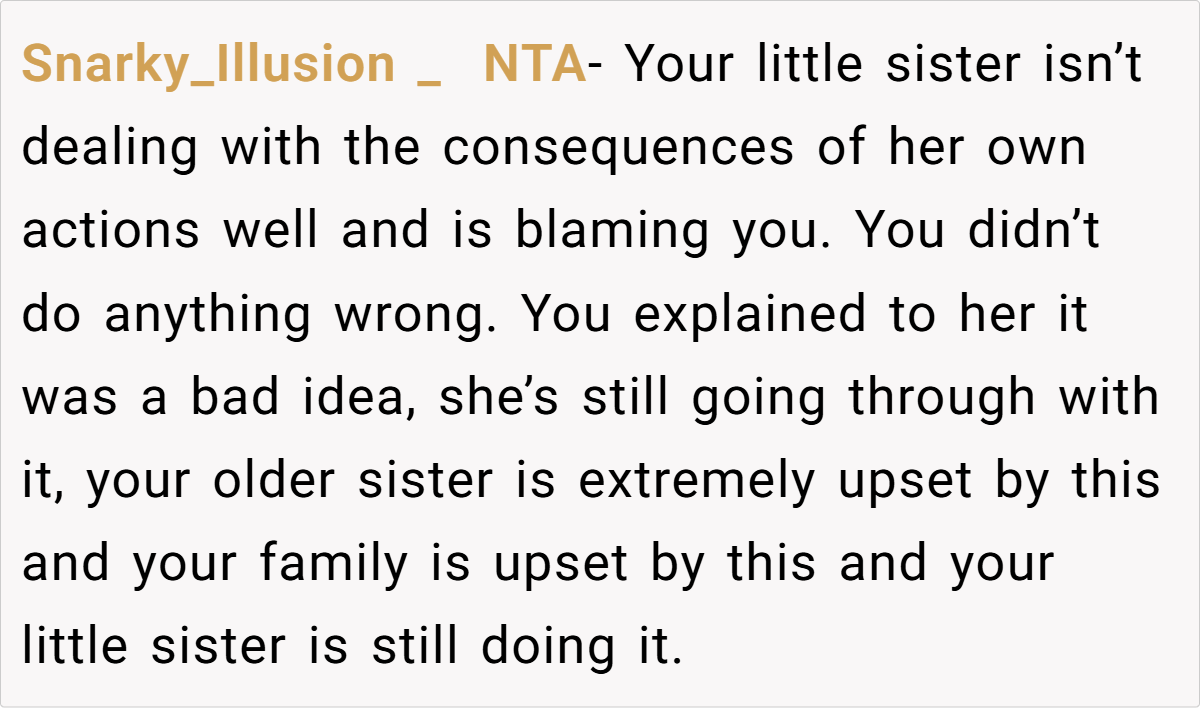
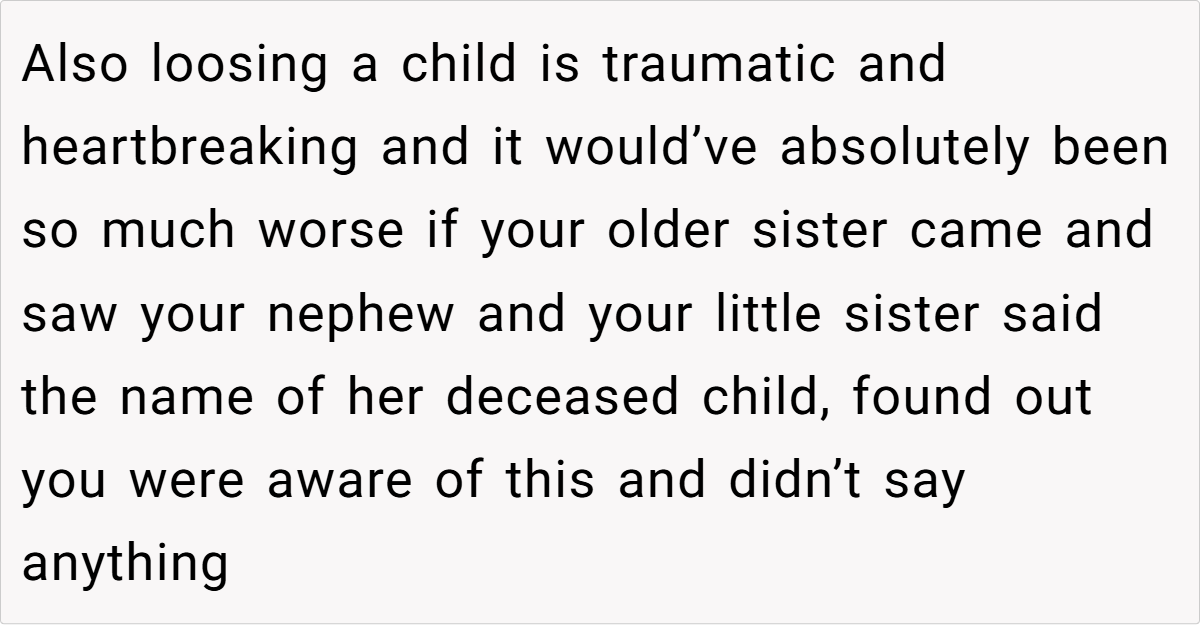
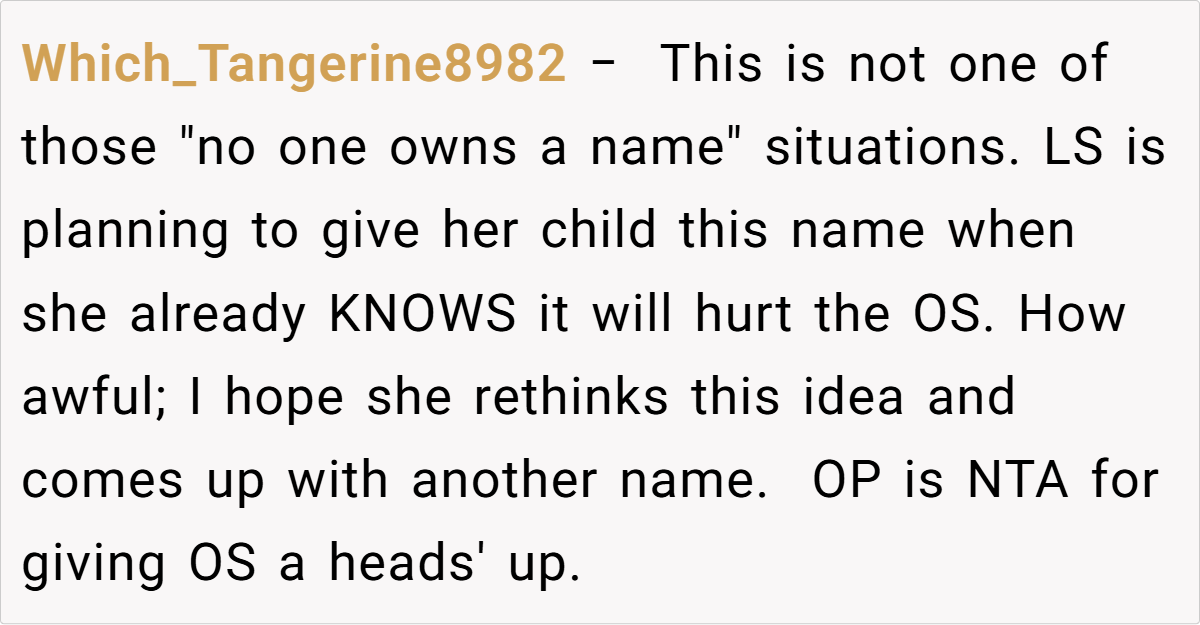

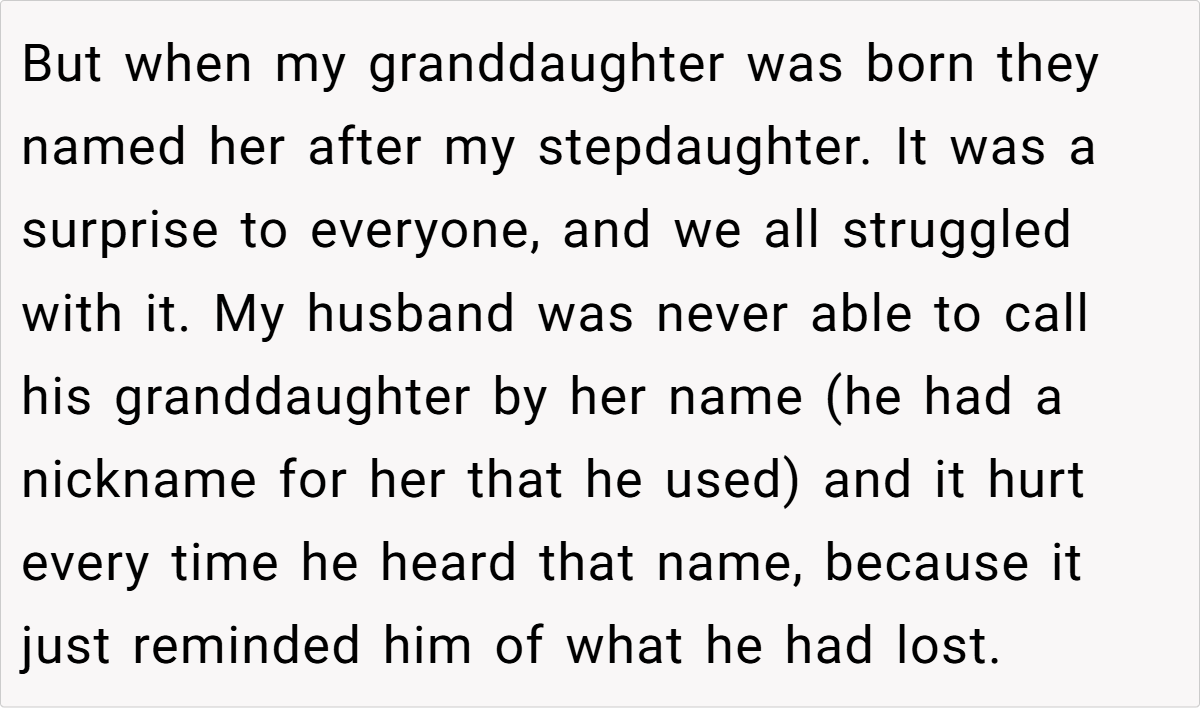
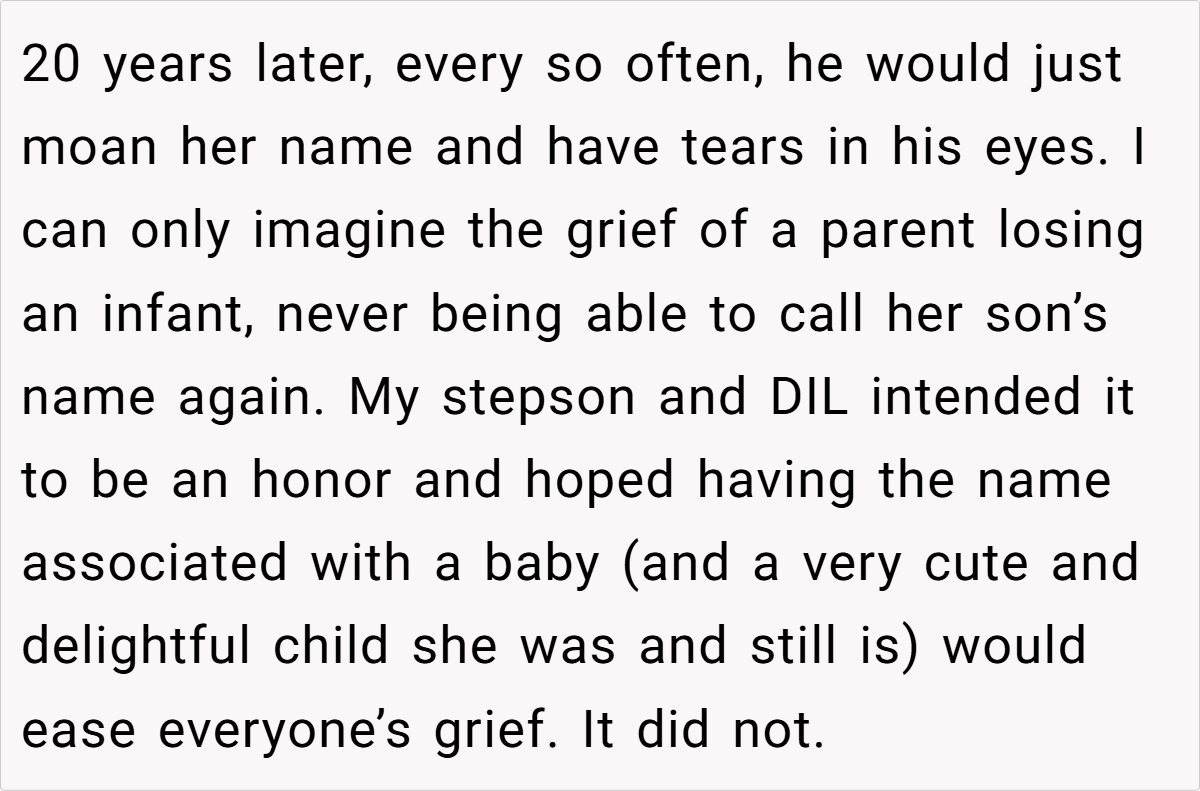

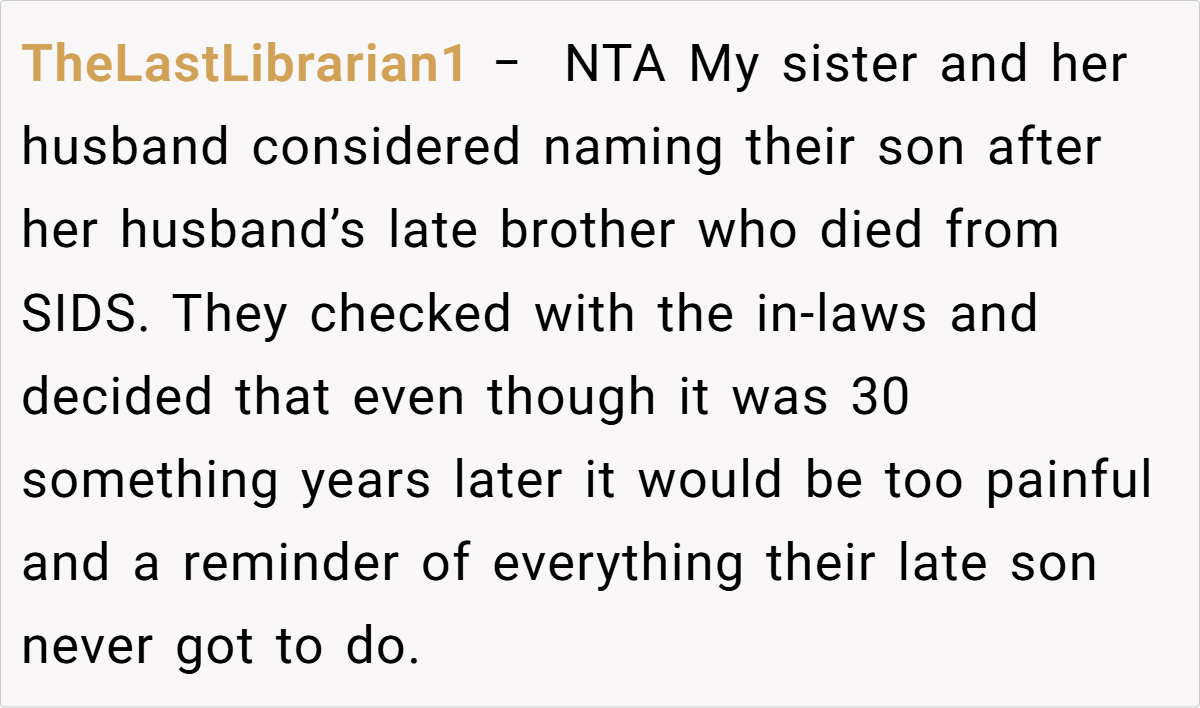
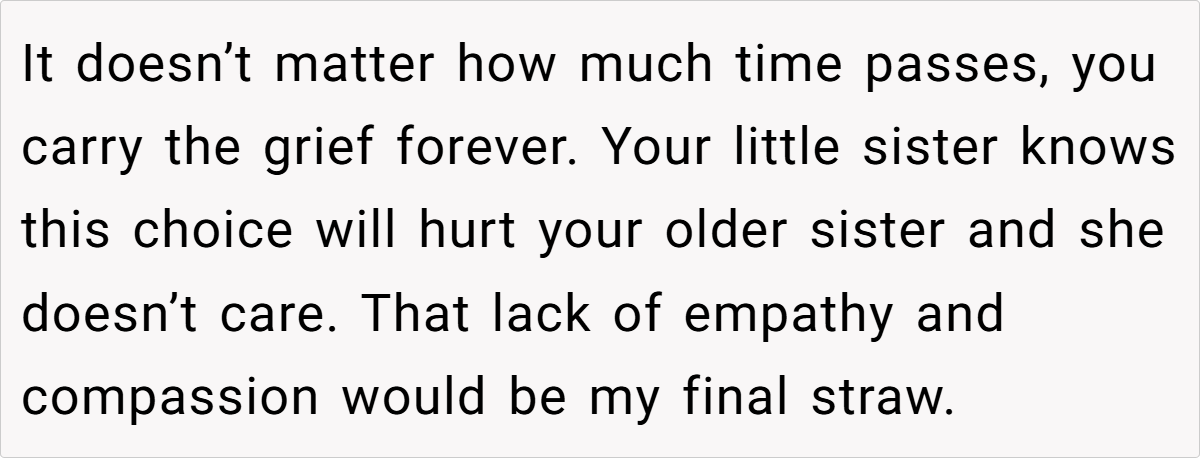

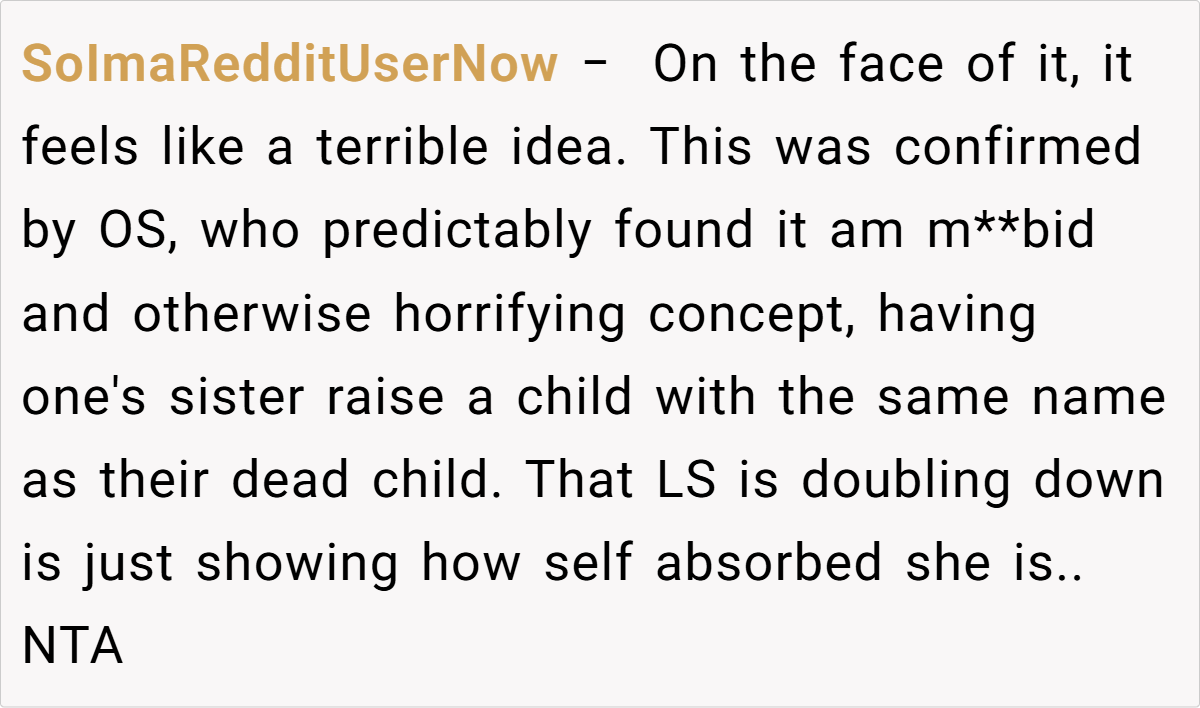
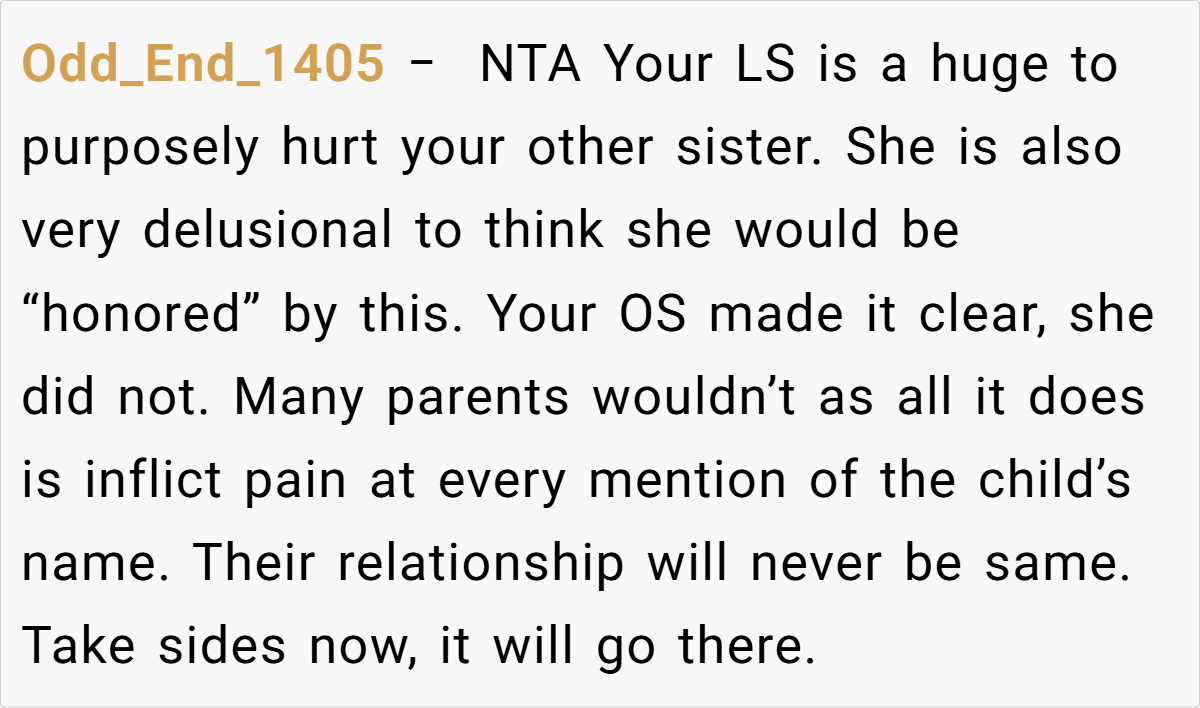
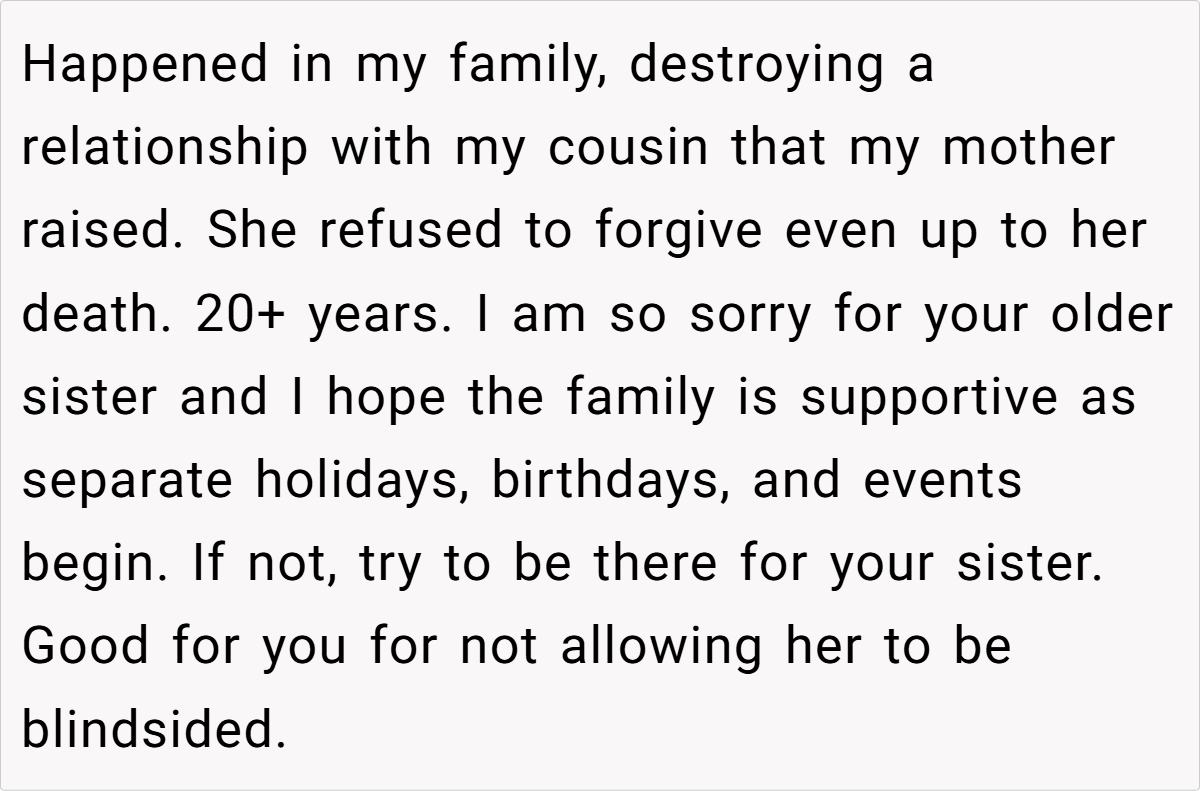
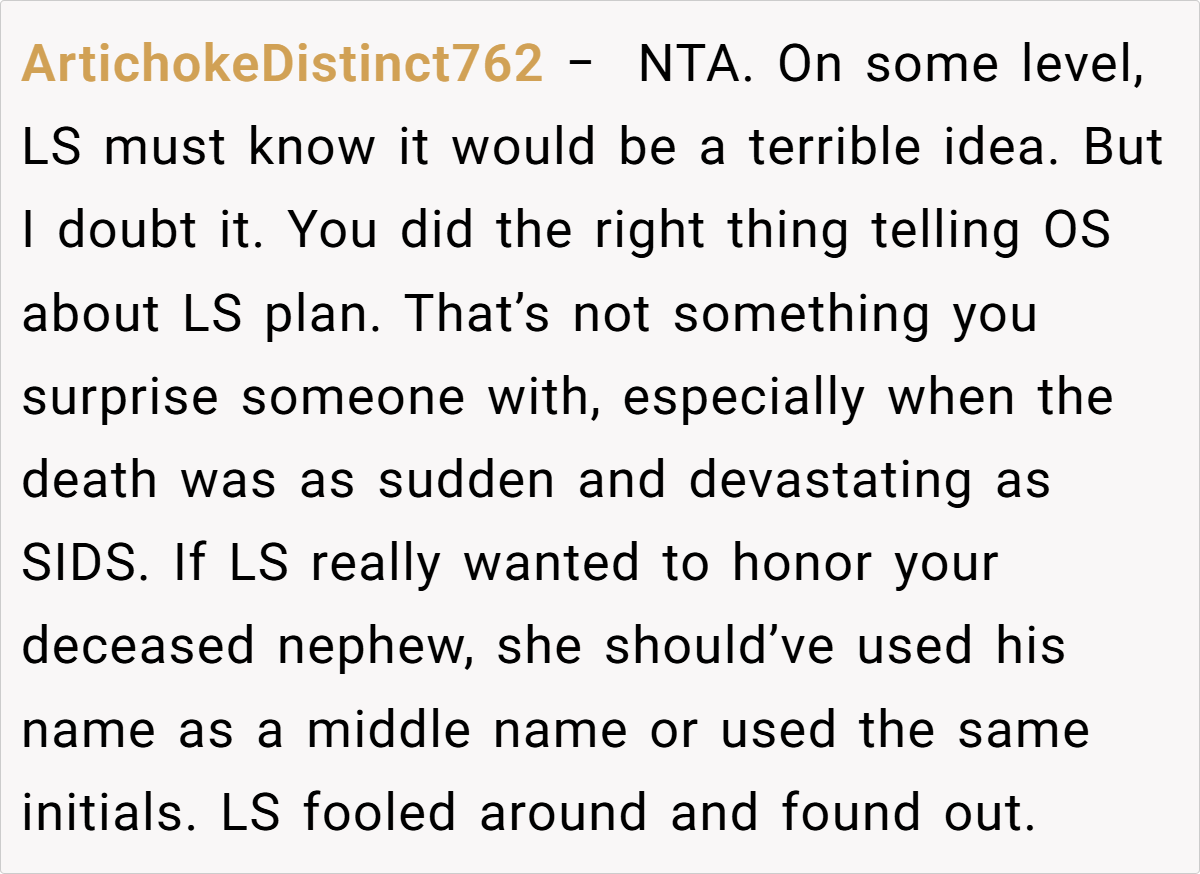
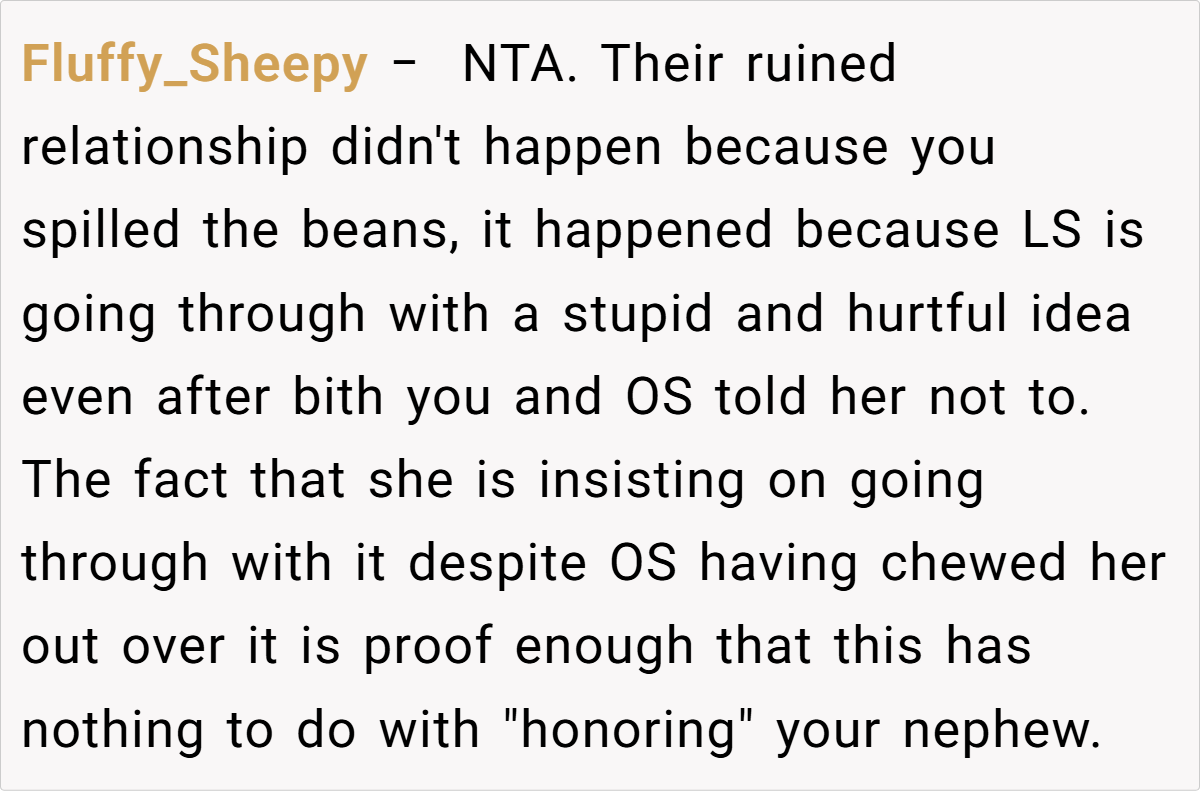

In the end, this naming controversy raises important questions about how we honor our past while embracing new beginnings. Should personal tributes ever come at the expense of someone’s healing process? How can families navigate such delicate decisions without alienating one another?
We invite you to share your thoughts and experiences—what would you do in a similar situation, and how can families better manage the intersection of grief and celebration?

